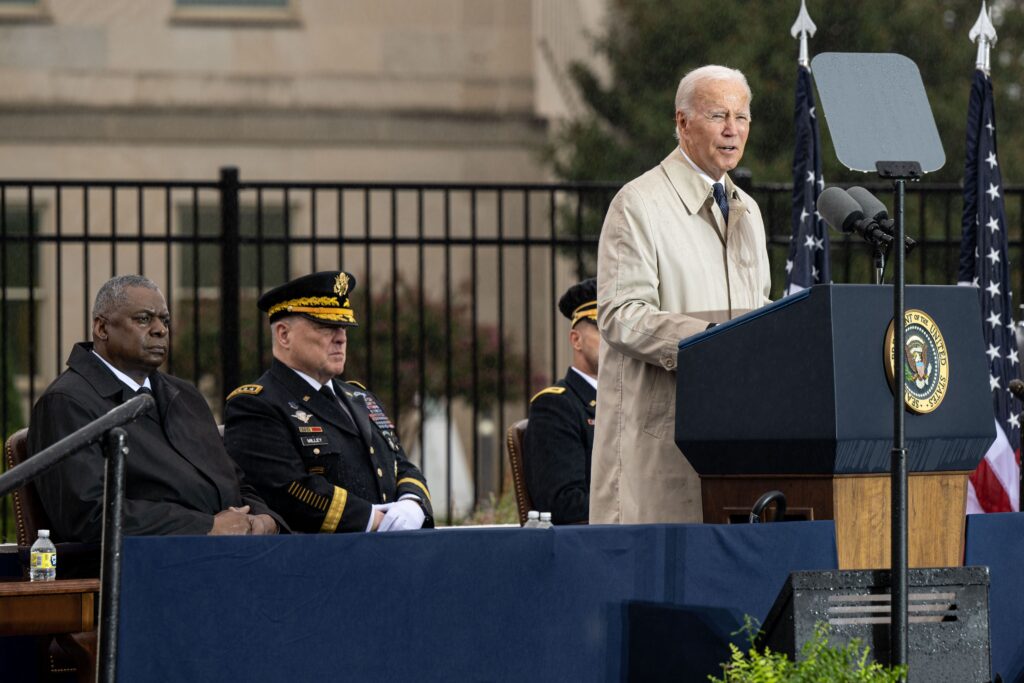Newsmatro

Washington, D.C. – President Joe Biden, in September 2021, marked the 22nd anniversary of the 9/11 terrorist attacks, becoming the first president in two decades to do so without U.S. troops engaged in Iraq and Afghanistan – two wars that followed the tragic events of that day. However, the impact of 9/11 continues to shape his presidency in significant ways, from calls for national unity to enduring distrust in government.
Speaking at a ceremony in Alaska, President Biden paid tribute to the lives lost on that fateful day, emphasizing the need for Americans to unite around the principles of democracy. He reflected on the sense of unity that emerged immediately after the attacks, a spirit that has waned over time but remains crucial in today’s divided America.
However, as time passed, the post-9/11 unity dwindled amid growing doubts about the Iraq and Afghanistan wars, which extended for years. These doubts contributed to deep-seated distrust in the government, a sentiment that poses challenges for President Biden’s leadership and his prospects in the upcoming election.
The scars of 9/11 are affecting Biden’s presidency in the following ways:
1. Erosion of Trust in Government:
2. Legacy of Afghanistan Withdrawal:
3. Impact on Foreign Policy:
4. Political Fallout and Trump Presidency:
The enduring impact of the 9/11 attacks continues to influence the political landscape, shaping President Biden’s presidency and the broader dynamics of American politics.